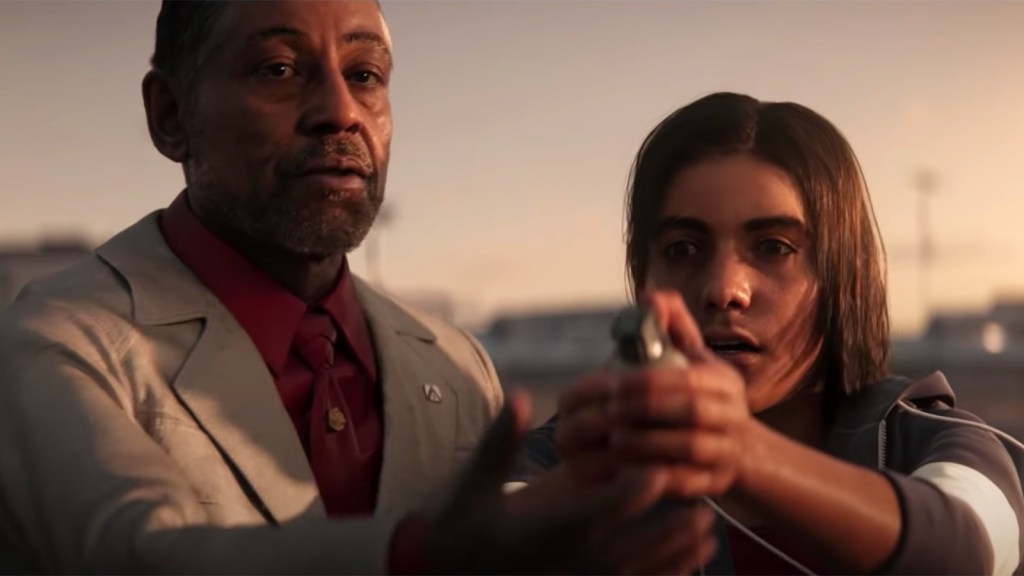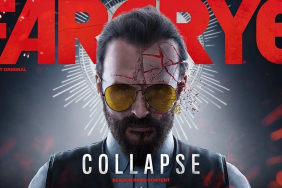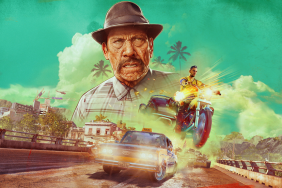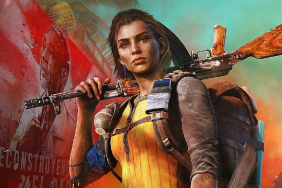Giancarlo Esposito, who plays Anton Castillo in the upcoming Far Cry 6, says that his character is “not a villain.” In an interview with Geoff Keighley during the recent Summer Game Fest kickoff event, Esposito jokingly denied that his character was a simple villain, clarifying that Anton was a man who “loved his country.” Additionally, he also revealed that the character was based on multiple dictators from history, the most prominent, but certainly not the only one, being Fidel Castro.
[Ubisoft] came to me with this phenomenal idea and had proposed that I play Anton Castillo, the leader of Yara with this big vision and dream for his country … he was a guy that first came from a love of his family and a love of his community and country, and was so in line with what’s going on with the world today and what has happened in the past.
Esposito has played numerous villains in the past such as Gus Fring from the TV show Breaking Bad, as well as Moff Gideon in the recent The Mandalorian series. Anton Castillo, however, will be the first time Esposito has played a villain in a video game role. Keighley later asked Esposito what it was like to play a video game villain, to which he jokingly responded, “I am not a villain, I have to push back on you [Geoff Keighley]… this guy loves his country. He wants to empower you, Keighley. He wants to empower you to stand up and speak your truth.” Esposito clearly wants people to see the nuance in his character, to understand his deeper motivations for doing the bad things he does.
When asked whether Castillo was instead a good guy, Esposito agreed, stating:
I feel like we as human beings fall in line, and I want to be a renegade within reason … there’s good and bad about all people, but this guy — out of his love and passion for his people — even if they’re faceless to him at certain points in time, allow him to be an absolute hero.
Furthermore, Esposito mentions that the character was most obviously based on Fidel Castro, stating that the Cuban leader had “the ability to cultivate [Cuba’s] resources” but that “something” got in the way. He also included elements from Romanian dictator Nicolae Ceaușescu and Adolf Hitler. To this, Esposito states that he focused on the mindset of dictators that “has you wanting to have power over others.” He also adds that there is nuance to each situation when it comes to motivations and that “each dictator is different.”
In part, it feels like Esposito is getting into character here as he defends Castillo as a hero, taking on the mantle of nuance in which dictators throughout history see themselves as the hero of their own story, and where the ends justify all the brutal means in their minds. Regardless of if players see Castillo as the villain and a bad guy to take down, Esposito wants them to also see why his own motivations are so powerful, because the key to defeating your enemy is in understanding them.
This comes just a few weeks after developer Ubisoft walked back claims that the game “was not political,” when narrative director Navid Khavari stated plainly, “our story is political,” though continued on to say they aren’t trying to make a specific political statement. This seems to be a recurring trend within triple-A games, with Battlefield 2042’s Design Director stating that the game’s background involving climate change and refugees “was not social commentary”.
You can check out the full interview via the Summer Game Fest Kickoff event VOD below (starts around 1:50:47)
Far Cry 6 releases October 7th, 2021 on PS4, PS5, Xbox One, Xbox Series X|S, and PC.








